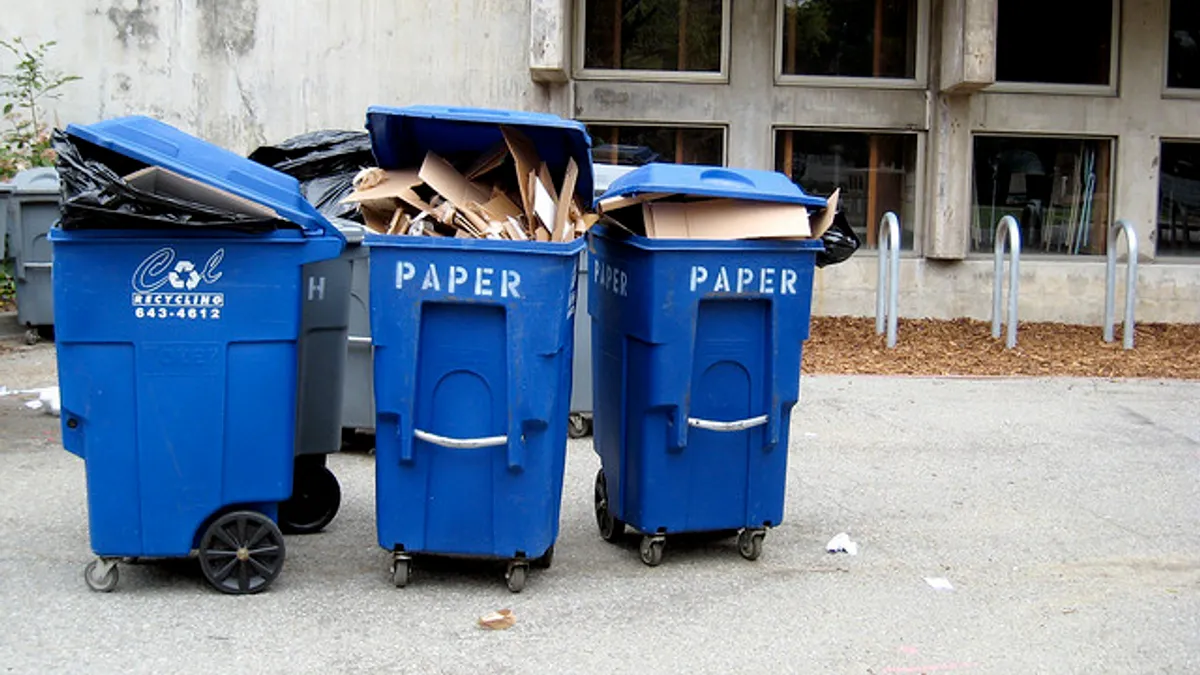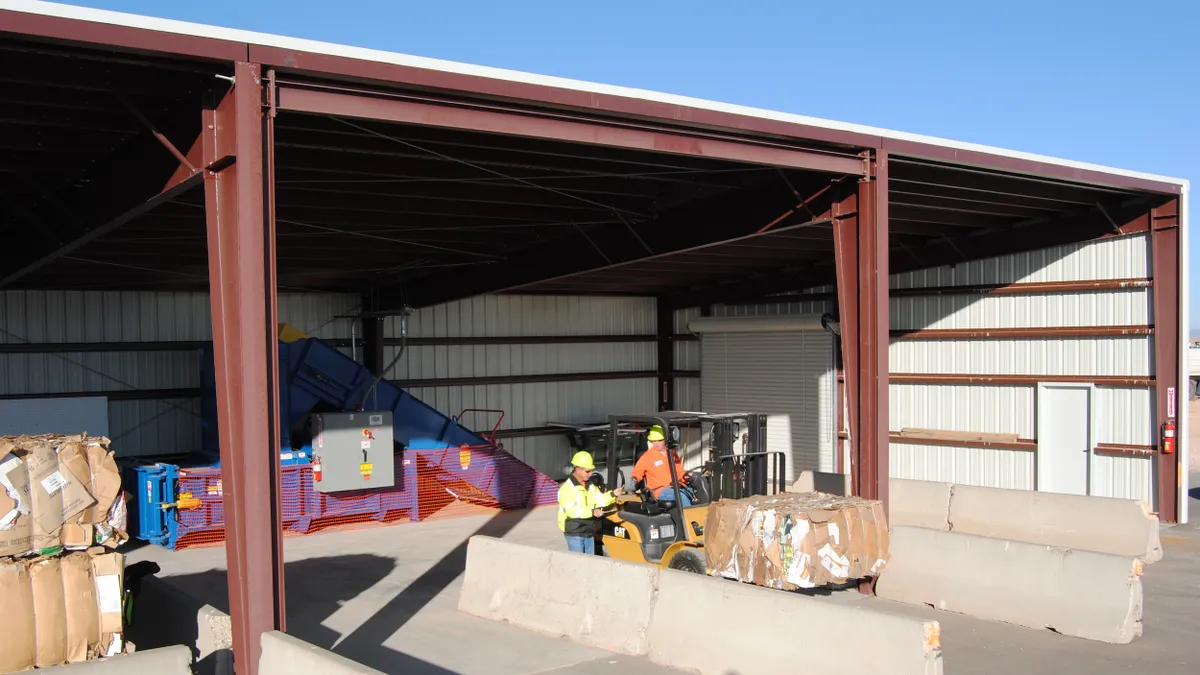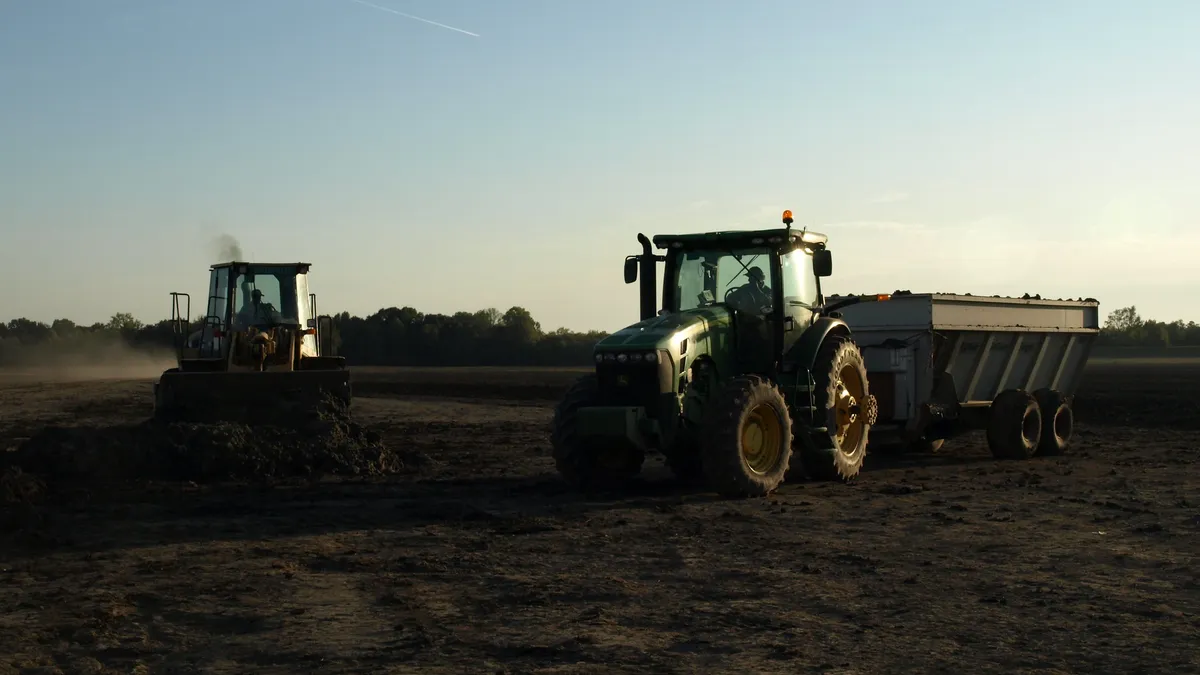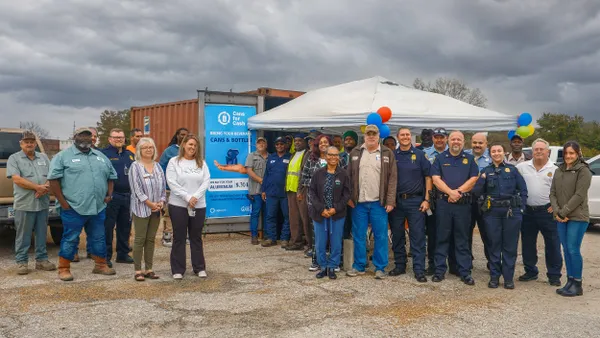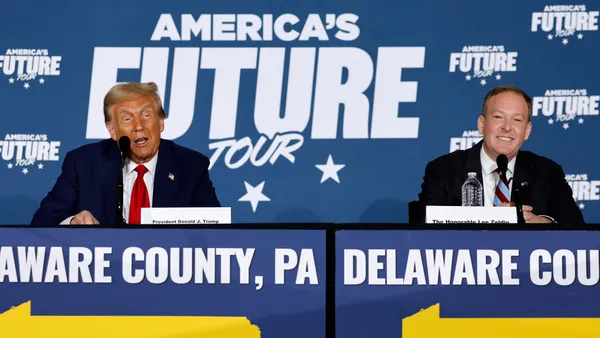Dive Brief:
- According to Vermont's Department of Environmental Conservation (DEC) the statewide disposal rate is down by 5% and recycling rates have increased from 33% to 35%.
- The state's 2012 universal recycling law — which took effect in July 2015 — bans residents from throwing away paper, aluminum, cardboard, steel cans, glass bottles and jars, and hard plastic bottles and containers.
- Starting on July 1, yard waste will also be banned from the state's main landfill and haulers will be required to collect it for separate processing.
Dive Insight:
The DEC said recycling rates had been stagnant for years until this law took effect, though some counties have struggled with costs and small towns have had problems with enforcement. Some haulers have also chafed at being asked to regulate residents' behavior.
Overall the state is confident that its recycling efforts are moving in the right direction and more requirements are coming for the commercial sector. Starting last July, businesses that generated more than one ton of food scraps per week had to send them to a certified composting facility within 20 miles. As of July 1, any establishment that generates more than one-half ton will be subject to the same requirement.
While these regulations have resulted in more fresh food donations, the state's composters are handling most of the material and their capacity has been questioned. Vermont currently has 11 composting facilities and one fully operational anaerobic digester, with another in the pilot stage. When residential food scraps are banned from landfills in 2020 the state's processing network will truly be put to the test.



